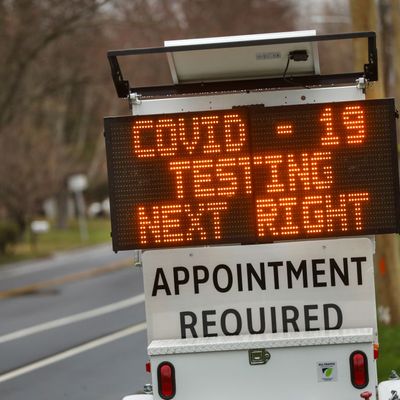
We’re committed to keeping our readers informed.
We’ve removed our paywall from essential coronavirus news stories. Become a subscriber to support our journalists. Subscribe now.
If the Trump administration’s goal is to bring the economy to something resembling its normal state as quickly as possible, expanded coronavirus testing should be a priority, as it will help determine just how high mortality and hospitalization rates really are — two variables that, because they remain in the dark, have required countries to implement all-systems shutdowns. Most likely, increased testing and serology testing — which determines if coronavirus antibodies are in patients’ blood, showing they’ve been exposed to the virus — would prove that hospitalization and mortality rates are far lower than originally anticipated. That good news, if proven by comprehensive testing, could then help determine a date to safely open the economy.
Instead of pursuing such a plan that is in line with its political goals, the White House will end federal support for coronavirus-testing sites on Friday, days before the crisis is expected to peak in the middle of next week. While the program providing resources was intended to serve as a stopgap measure, states have relied on it to help prop up their own testing efforts in the absence of a national coordinated testing strategy.
While a FEMA spokesperson told NPR that the program of Community-Based Testing States are “transitioning to state-managed sites,” some health providers aren’t thrilled by the switch. “I am understandably disappointed that the supplies and federal contract for lab testing is ending just as we are heading into the surge here in southeastern Pennsylvania,” Dr. Valerie Arkoosh, chair of the health commission in Montgomery County outside Philadelphia, told NPR.
After the Centers for Disease Control and Prevention stumbled in the weeks leading up to the mass outbreak in March, states have been largely left to determine their own course of coronavirus testing. While New York has tested 1,645 of every 100,000 people and Utah 1,043 of every 100,000, Texas has tested just 297 of every 100,000. “Unfortunately, states really are on their own,” Partners in Health medical director Joia Mukherjee told the Washington Post. The Boston-based health-care nonprofit is working with Massachusetts to create a comprehensive contact-tracing network, which would track coronavirus patients’ interactions. “It’s problematic at best and egregious at worst, because some states have more resources than others; some states have more leadership than others.”
According to Bloomberg, the Trump administration is quite aware of the importance of testing to bring the economy back online:
The White House is developing plans to get the U.S. economy back in action that depend on testing far more Americans for the coronavirus than has been possible to date, according to people familiar with the matter.
The effort would likely begin in smaller cities and towns in states that haven’t yet been heavily hit by the virus. Cities such as New York, Detroit, New Orleans and other places the president has described as “hot spots” would remain shuttered.
However, there appears to be a gap between planning and providing on-the-ground funding, which is becoming a theme of the crisis. Both individuals and small businesses are having trouble accessing the overloaded relief programs designed to provide aid in this moment of historic unemployment. And despite the unprecedented step of a $1,200 universal income payment, it may not reach those who need it most until September.






























